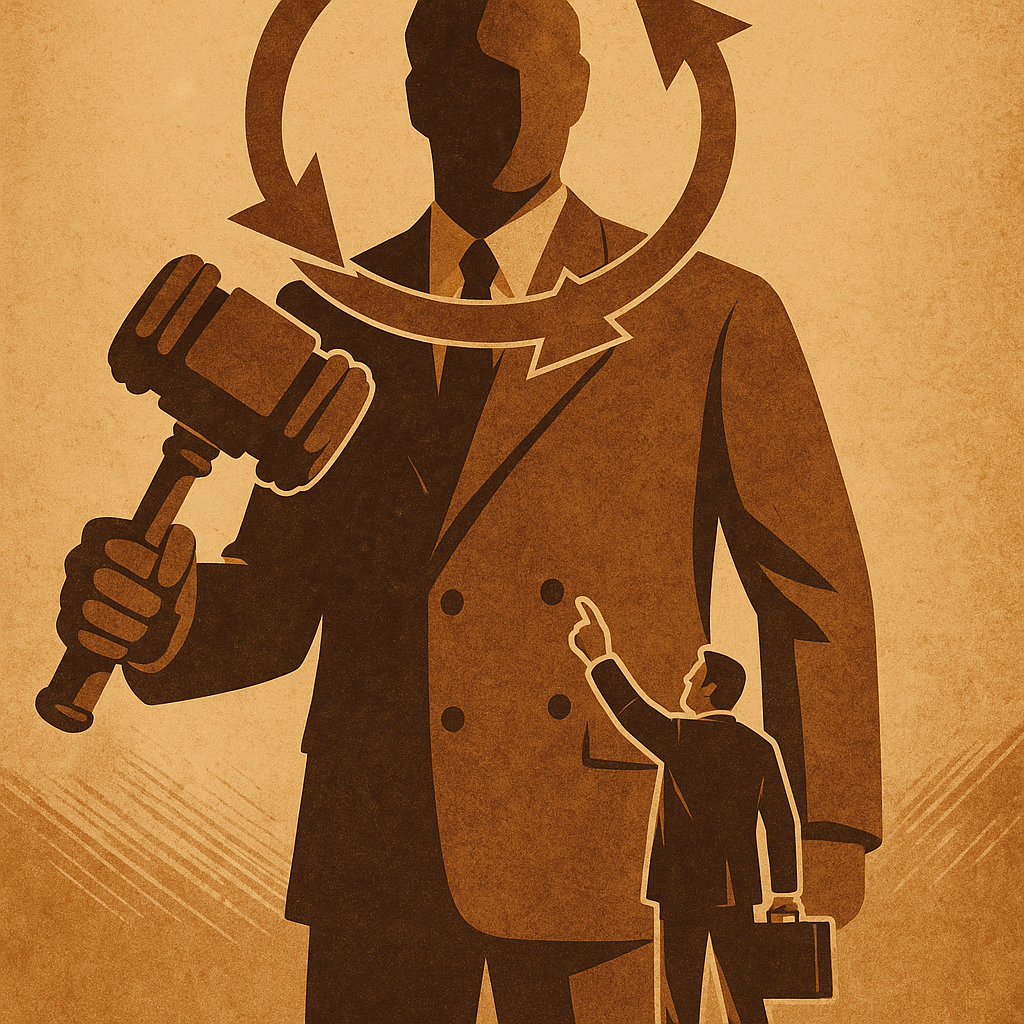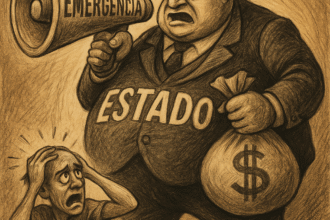They say we need agencies to monitor the market. But no one seems to ask: who monitors the agencies?
In this post, we will expose how the so-called “independent authorities” of the State — such as regulatory agencies and technical bodies — often become instruments of political power, captured by interest groups and disconnected from any real control by society.
👉 Read also: Perpetual Emergency: How the State Uses Crises to Expand
The myth of regulatory neutrality
Regulatory agencies emerged with the promise of protecting consumers, ensuring fair competition, and preventing abuses.
In theory, they are “technical”, “independent” bodies that act as impartial arbitrators between the State, the market and society.
In practice, however, these institutions often:
- They act under the direct influence of the government in power
- They protect large companies from competition with excessive rules
- They become a political springboard or a job opportunity for allies
Regulator or gatekeeper?
The problem is not regulating the basics — but transforming the regulator into absolute lord of entire sectors of the economy.
Who controls an agency like ANVISA, ANEEL, ANATEL or CADE:
- Defines who can operate.
- Decide what can be sold.
- Set the rules of the game — and change them whenever you want.
And this creates a paradox: the greater the power of the regulator, the less freedom the regulated agents have.
The market ceases to be an open field and becomes a closed club — with rules created by who doesn't play, but chooses who enters.
Regulatory capture is real
The term "regulatory capture” describes this phenomenon exactly:
An agency that should protect society begins to serve the interests of the companies closest to power.
- Banks that influence Central Bank regulations.
- Health plans that operate under the shadow of the ANS.
- Large energy companies that shape ANEEL’s performance.
- Logistics monopolies protected by ANTT decisions.
Regulation becomes a privilege. Competition becomes an exception.
The Invisible Cost of Overpowered Bureaucracy
The more power given to the regulator, the more unpredictable the business environment becomes.
And this generates:
- Less innovation
- Less investment
- Less entry of new competitors
- More bureaucracy
- More costs passed on to the consumer
The result? A state system where no one is elected, but everyone commands.
And who regulates the regulator?
This is the question that almost no one asks.
If the market makes a mistake, it is punished by competition, by bankruptcy, by the consumer.
But when does an agency make a mistake?
- Who answers?
- Who pays?
- Who fires the “expert” who paralyzed entire sectors out of caution, ideology or convenience?
There is no vote. There is no market. Only permanence.
Conclusion: Regulatory power has become a political power disguised as a technical power
The expansion of regulatory agencies is the triumph of technocracy: a model where specialized knowledge serves as a shield for unelected power.
Regulation should be minimal, transparent and predictable.
But in Brazil, it became instrument of blocking, privilege and control.
It's time to get back to the original question:
Who regulates the regulator?
And most importantly:
Why do we entrust so much power to those who answer to no one?
📩 Do you want more critical analyses of state power and its mechanisms of domination?
Subscribe to the Economic Radar newsletter and receive direct, analytical and liberating content in your email.





